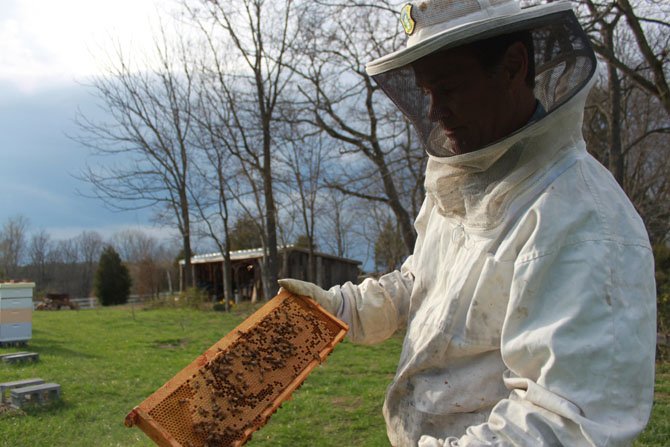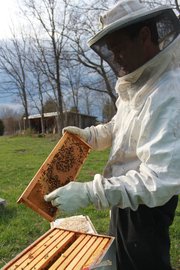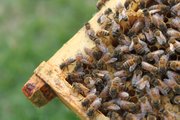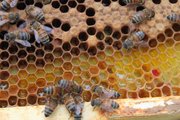Educational outreach is sweet nectar for Sweet Virginia.
Executive Director Dan Price is using college students to promote honeybee sustainability to college students in the changing world.
“I thought someone needed to get the population of bees in Washington, D.C. back to what it used to be,” said Price. “I made that my mission.”
Price has put bees in the forefront of minds in D.C. by installing two hives on top of the National Geographic Museum.
His partnership with George Mason University is officially in its first year. Unofficially, says New Century College professor German Perilla, Sweet Virginia has been working with the college for two years.
GMU currently has about 25 beehives provided by Sweet Virginia to research artificial and natural bee insemination and honeybee mortality.
“The reason we are studying them is because they are very special animals,” said Perilla.
Price said they are special for many reasons. However, a big reason they are important is because they help control the prices for a lot of the food people eat on a regular basis. He said $15 billion of food production depends on bees.
“Without bees, food will be less expensive and plentiful,” he said. “Unless the world is going to figure out the honeybee problem, the world’s not going to fall apart, but those foods are going to be more of a luxury item.”
He has noticed it is harder every year to keep his bees alive through the winter. Colony collapse is not a big problem in the state. The bigger problems are non-native pests and lack of nearby food sources.
“There were years that we lost half of them,” he said about the bees. “This year was a pretty good year. I think we did a pretty good job preparing in the fall.”
Bees can travel several miles to find a flower, but they prefer to stay closer to the hive. Price said his honey used to be better when he started Sweet Virginia in 2008 because of the acres of forests and wildflowers prevalent near the foundation’s headquarters in Nokesville near Reston. However, the construction taking place off I-66 and a housing development near his property has destroyed that natural land.
“Seven years ago, that was the country,” he said. “It’s harder for them to make honey.”
Local fields were torn up to make artificial turf fields - which the bees cannot use.
However, he feels that bees should be a part of the urban and suburban environment. In D.C., honeybees feast on the cherry blossoms and flowers that bloom alongside roads and in flower boxes.
In anticipation of Earth Day on April 22, he said homeowners can help bees by growing plants they are attracted to, like wildflower patches, anything in the mint family and herbs.
“There’s all kinds of lessons you can get from bees,” said Price. “This world isn’t just random chaos. There’s an order and beauty to it.”



